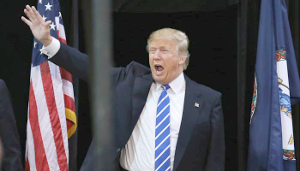Signed on Friday, the Trump Administration’s temporary travel ban for people from seven different Muslim countries, which also includes “extreme vetting” for other Muslims as well as a full (but also temporary) ban on refugees entering the United States in general, has fueled significant protests nationwide, while Trump struggles to defend the idea on national security grounds.
 According to White House Chief of Staff Reince Priebus, the ban could be just the beginning, and that other nations, including Afghanistan, Egypt, Saudi Arabia, and Pakistan, could be added at any time by President Trump with the same restrictions.
According to White House Chief of Staff Reince Priebus, the ban could be just the beginning, and that other nations, including Afghanistan, Egypt, Saudi Arabia, and Pakistan, could be added at any time by President Trump with the same restrictions.
Priebus also indicated that the “extreme vetting” warning about people entering the nation from Muslim countries would also apply to American citizens who had traveled to any of the banned nations, saying he figured most Americans would support the idea.
The immediate implementation of the executive order provoked a lot of confusion, and several stories of people who had all the proper paperwork to travel to the United States getting on a flight, having the ban signed while they were in mid-air, and getting detained at the airport when they landed.
This confusion and these detentions also provoked a lot of lawsuits, and despite the administration’s talk of expanding the travel bans, their near-term efforts are likely to center on trying to defend what they did in court, with at least four federal judges having issued rulings since Saturday morning to restrict implementations of various parts of the order.
The Department of Homeland Security attempted to shrug off the judges’ rulings, insisting that they will continue to fully implement the executive order irrespective of what the courts decide. At the same time, the DHS has insisted that they will not apply the ban to anyone who was already a permanent legal resident of the United States at the time the order was signed.
The British Foreign Office has also reportedly negotiated a special exemption for banned citizens who hold dual-citizenship in Britain, allowing them to continue to travel to the United States as normal. The move was the result of weekend negotiations, according to officials.


